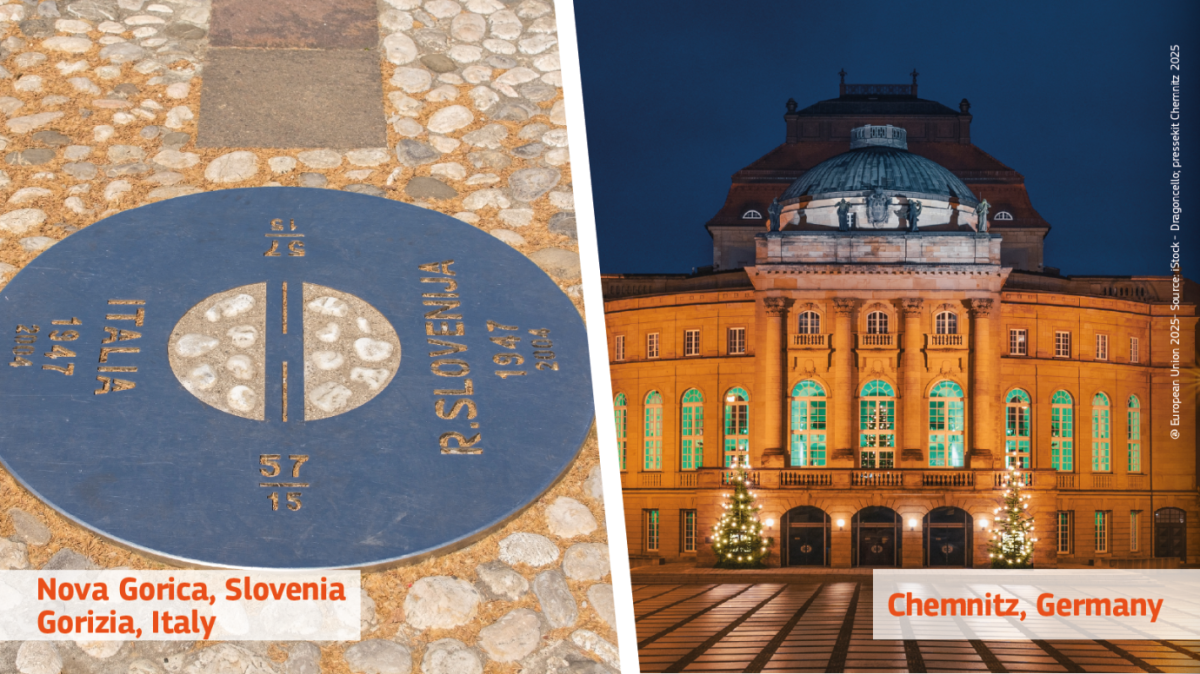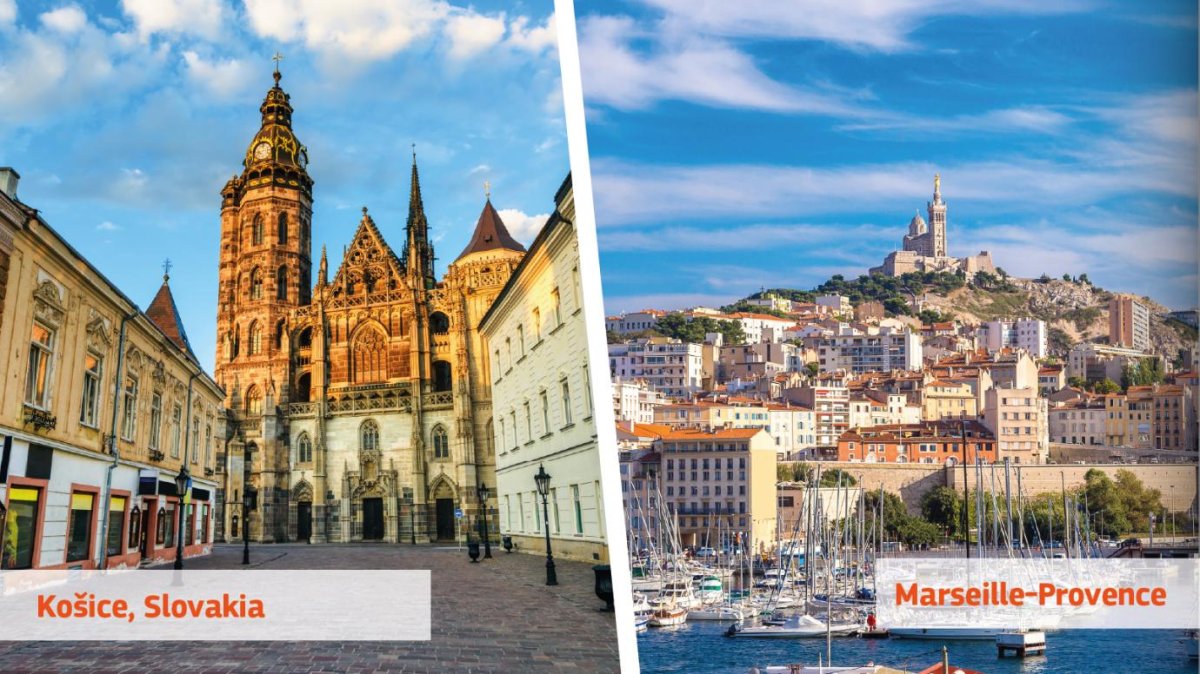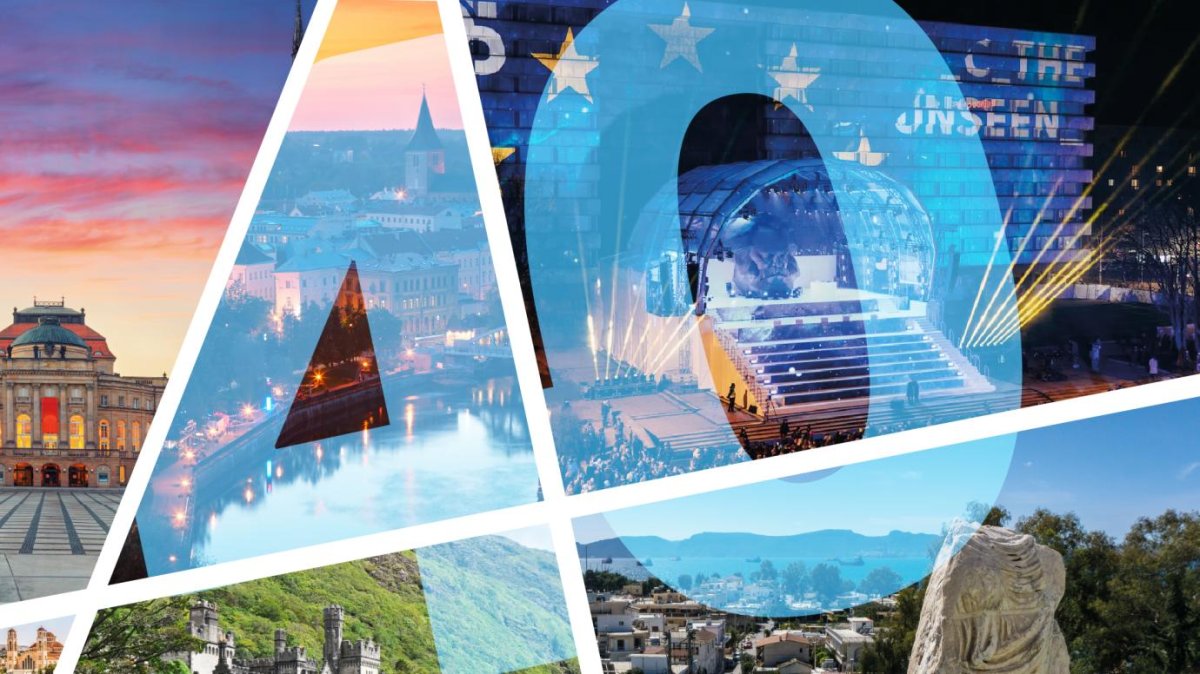“It is estimated that each €1 spent on the Melina Mercouri Prize was matched by an additional €30 of other funding from either national, regional or local public purse or private sources” according to the European Commission’s “First Interim Evaluation of the European Capitals of Culture action 2020-2033”.
Highlights of the report refer to ECoC’s cost-efficiency, economic benefits and cultural activity as:
- Visitor numbers increased by 30–40% on average in selected cities, boosting international visibility and cultural tourism, and
- cultural activity increased by around 300-500% in the ECoC year compared with years before the ECoC took place.
The report provides insight on achievements, challenges and key lessons for the future. Proposals aim at ensuring ECoC’s continued success and relevance in the next phase after 2033.
The authors suggest ensuring cross-party political support at national level and integrating a post-ECoC impact strategy already at the bidding stage. Data gaps still persist, while communication and the European dimension of the initiative should be strengthened. Knowledge-transfer should be addressed "in the absence of a formal ECoC network" and an update is need, especially as more and more small cities become titlebearers.
Celebrating one of the EU’s most high-profile cultural programmes, more than 60 cities across the European Union (EU) and beyond have been awarded ECoCs since the first title of 1985. The European Capitals of Culture for 2025 are Chemnitz (Germany) and Nova Gorica (Slovenia). Chemnitz has already reported succesful rates in first six months of ECoC year.

ECoC is Cost-efficient and Successful, but needs an Update
“Overall, the action collectively stimulated around €940 million in funding for cultural activity across the EU between 2013 and 2023. However, the prize value – €1.5 million - has not been changed since 2010 and has depreciated over time, with the equivalent value in today's prices being about €2 million” reads the report.
According to stakeholders’ comments: “The cultural budgets of host city administrations were often around five times larger as a consequence of hosting their ECoC”.
However, it is important to update the action to ensure its continued relevance in the future, “in particular by taking into account emerging trends which appeared in the recent years, such as an increased number of smaller cities as titlebearers”.

Marseille, Košice and Leeuwarden championed ECoC budget - so far
The biggest budgets so far were observed in Marseille, Košice and Leeuwarden (each spending around €100 million) whilst the smallest budget was from Paphos (with a budget of €8.2 million).
San Sebastián, Kaunas and Wrocław respectively hosted over 3,000 events, over 4,500 and around 2,000 events “adding to a great extent on their normal yearly cultural offering”.
A typical ECoC year includes around 1,000-1,200 separate cultural activities (normally 50% higher compared to a non-ECoC year, in cities recording such data) with a budget of around €50 million for preparation and implementation of the cultural year. A 60% of the ECoC budget for 13 out of the 18 titleholders under review went directly to funding cultural activities, the rest being allocated to the staff wages and overheads of the delivery structures, communication and marketing activities, among others.
Strengthen your legacy plan to increase your potential of ECoC award
“ECoC should not be a one-off event, but a long-term project” reads the report and suggests that “The Commission could explore the reinforcement of the ‘contribution to the long-term strategy’ criterion and strengthen evaluation criteria and indicators to foster longer-term impacts in the different candidate cities”.

It is noted that “the fast phasing-out of ECoC delivery bodies often results in missed opportunities to maintain momentum”. On the other hand, awarded cities enjoy long-term benefits in terms of urban regeneration, civic participation, and strengthened cultural and creative sectors, while the action “fosters inclusivity, engaging populations that do not always engage with culture”.
It is hard to encourage local agents to ‘think through the European lens’
A general difficulty in incorporating the European dimension into their cultural programmes was highlighted by stakeholders. They commented finding it hard for local organisations to ‘think through the European lens’ as they often target local groups and audiences.
However, “The ‘European dimension’ is a key element of the ECoC action and selection criteria [...] and the “European Commission could explore ways to develop the understanding of this dimension”.
ECoC to improve on political support, knowledge transfer, communication and data reporting
“Cities bidding for the title should seek wide political support across parties” as political instability was found to be one of the main issues often challenging ECoC implementation.
Additionally, knowledge-sharing in the ECoC community needs to be strengthened for the action to reach its full potential, in particular in relation to its European dimension, as “due to the absence of a formal ECoC network, there is risk of losing knowledge between newly appointed and past cities” according to the report.
There is room for improvement on communication, beyond the Commission’s current activity with multiple channels, including press release, websites, and social media. “The ECoC would benefit from EU communication efforts to support and complement the work of the title-holding cities, in coordination with and with input from the Member States” reads the report and proposes for “appointing ECoC ambassadors at political level”.
Data gaps still persist and the Commission’s set of indicators should be revised. “The majority of data compiled relates to the Effectiveness and Efficiency evaluation questions, given the more quantitative nature of these evaluation criteria. Less was found on Coherence, Relevance, and EU added value criteria” according to the report.

Background
The European Commission published its Report to the European Parliament, the Council, the European Economic and Social Committee and the Committee of the Regions on the “First Interim Evaluation of the European Capitals of Culture action 2020-2033”, supported by a Staff Working Document, as required by Decision No 445/2014/EU of the European Parliament and of the Council establishing a Union action for the European Capitals of Culture for the years 2020 to 2033.
The evaluation report was prepared by the European Commission, based on the external study from Ecorys Europe and KEA European Affairs.
Find more here
Image 1: © Johannes Richter - Hutfestival_Chemnitz Innenstadt - Courtesy of Chemnitz European Cultural Capital of Culture
Image 2: © European Union, iStock - Dragoncello; Chemnitz 2025 - Courtesy of the European Commission
Image 3: © Ernesto Uhlmann - Light Our Vision - Courtesy of Chemnitz European Cultural Capital of Culture
Image 4: © European Union featuring - Courtesy of the European Commission
Image 5: © European Union featuring 40 years ECoC celebration - Courtesy of the European Commission












